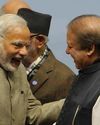IN THE DAYS LEADING UP TO AND IMMEDIATELY FOLLOWING PARTITION AND PAKISTAN’S BIRTH, JINNAH KEPT FLIP-FLOPPING IN HIS PUBLIC STATEMENTS, AS IT SUITED HIM.

AS MUSLIM REFUGEES from East Punjab streamed into Pakistan following the Partition massacres, Mohammad Ali Jinnah initially reiterated his oft repeated belief in exchanges of population, something he had first articulated soon after the All India Muslim League’s (AIML) Lahore Resolution in 1940 and would repeat, following the Bihar and Garhmuktesar riots in 1946. As he noted, “if the ultimate solution to the minority problem is to be mass exchange of population, let it be taken up on a governmental plane and not left to be sorted out by bloodthirsty elements”.
But as Pakistan faced a flood of refugees, Ghazanfar Ali Khan, the Pakistan Rehabilitation Minister, made it clear that it did not want any exchange of population. Prime minister Liaquat Ali Khan’s statement that the government of Pakistan was absolutely opposed to migration of Muslims from Delhi, the western parts of the United Provinces of Agra and Oudh (now Uttar Pradesh — UP) and areas outside East Punjab came as a major psychological blow to UP Muslims.
This story is from the September 2017 edition of Swarajya Mag.
Start your 7-day Magzter GOLD free trial to access thousands of curated premium stories, and 9,000+ magazines and newspapers.
Already a subscriber ? Sign In
This story is from the September 2017 edition of Swarajya Mag.
Start your 7-day Magzter GOLD free trial to access thousands of curated premium stories, and 9,000+ magazines and newspapers.
Already a subscriber? Sign In

Refuging Progess
There is a well-orchestrated global conspiracy to deny scientific and technological developments from the West to Third World countries.

The Monk Of Science
Vivekananda believed that Religion should be subjected to scientific methods of investigation. The third and concluding part of our series on the Swami and his views on science.
The Next Step
Indian technical manpower can be trained for high-value-added emerging services in the era of mass commoditisation of hardware.
The Threat Of Autarchy
The force of globalisation is an irreversible reality, and it is countries like India and China that will nurture it going forward.

Neanderthals: The Womb Of Caves
Recent discoveries indicate that Neanderthals may have had a rich inner life, including symbolic thought. Indeed, they may have been the progenitors of human religions.

Getting India's World Right
Incremental concessions will get India nowhere with Pakistan and China. What we need is a classically conservative foreign policy, based on realism.

The Hesitant Orbit
In order to march boldly ahead into the deep space, New Delhi must work towards building a station, boost its techno-economic planning and use the Indian Space Research Organisation smartly.

Nudges And Narratives
The debate surrounding Sanjay Leela Bhansali’s Padmavati brings India a complex network of portraits within a cultural world-system.

The Spell Of Specialisation
THE INDIAN ADMINISTRATIVE SERVICE NEEDS AN URGENT REJIG. THE KEY TO SPEED AND EFFICIENCY LIES IN PUTTING AN END TO A GENERALIST APPROACH AND IN GOING FOR A NEW SERVICE.
The Great Gamble
With demonetisation, the prime minister has taken a huge risk— both economic and political. He must succeed, because this move could transform both our economy and our society.